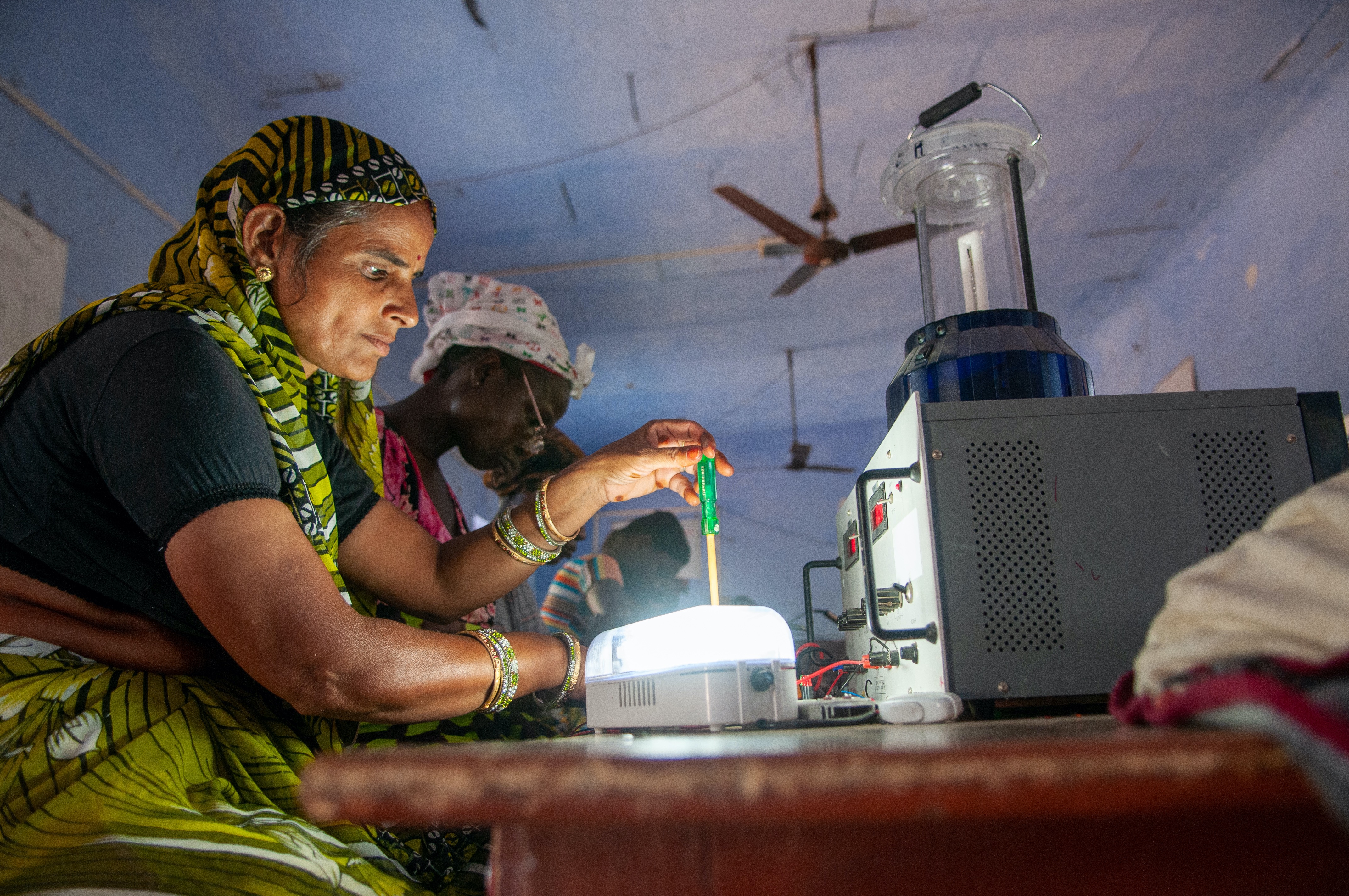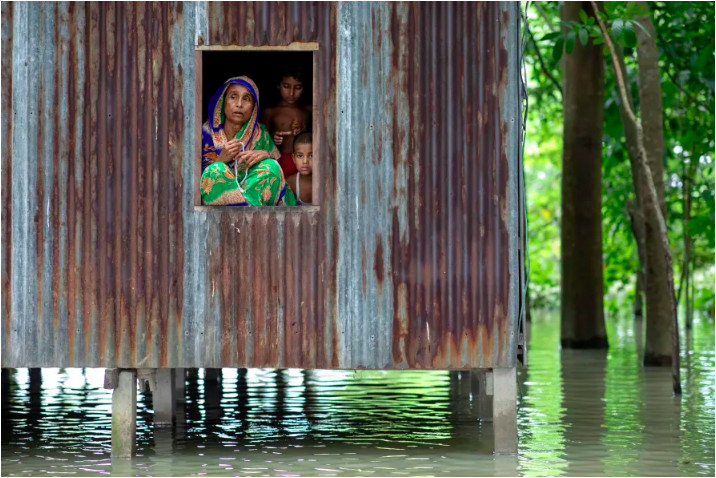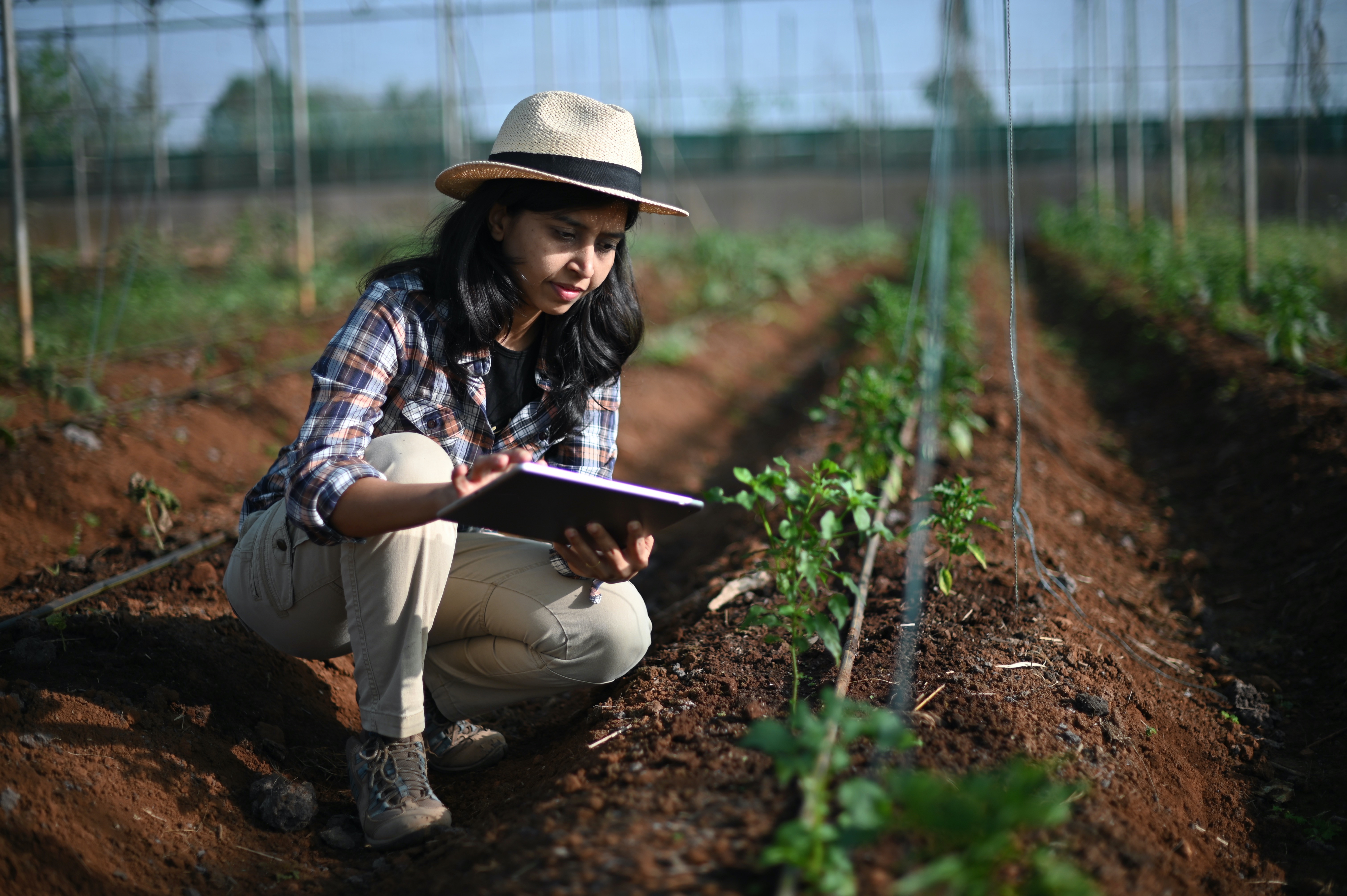
Environment
Our window is closing on a liveable future

For a sustainable future we need to bring women and girls to the forefront of the fight against climate change - a shift from the most affected by climate disasters to key players in energy transition
Published 28 November 2022
This year’s UNFCCC Conference of the Parties (COP 27), held in Egypt in Sharm El-Sheikh, has highlighted once again that climate change is the single most critical challenge of the 21st century.
This time, however, an assertion has been emphasized more strongly than on other occasions: this crisis is not gender-neutral.

With the impacts of landslides, severe droughts, floods and hurricanes becoming more evident around the world each year, one thing is clear - this phenomenon is exacerbating existing gender inequalities and poses unique threats to the livelihoods, health, and safety of women and girls, particularly those living in developing nations.

Environment
Our window is closing on a liveable future
Across most societies, women have unequal access to resources and restrictions on their movements and freedoms resulting in reduced capacity to generate income and disproportionate caring responsibilities.
About two-thirds of the world’s illiterate people are women. Women also own less than 20 per cent of the world’s land and earn 10 per cent of the world’s income. They hold only 18 per cent of seats in parliaments worldwide, and represent 70 per cent of those living in extreme poverty and 80 per cent of refugees.
Consequently, women and girls are 14 times more likely to die in the event of tropical cyclones, heat waves and other natural disasters.
Moreover, if women do not have access to education, loans, political positions or land ownership, they will be excluded from the workforce and from making decisions about sustainability.

Generally, women are less able than men to adapt to changes in agricultural practices because of financial constraints and a lack of information.
It is increasingly apparent that promoting gender equity is essential to guarantee positive outcomes in the fight against climate change.

As such, international climate change negotiations must incorporate women’s needs, perspectives and experiences to address not only the reduction of climate vulnerabilities, viewing women as mere victims, but also the empowerment of women to act and become key players in the fight against climate change.
In fact, according to the climate research group Project Drawdown, women’s empowerment in developing countries is the second most effective solution to reduce global warming.
Women can play an important role in the implementation of low-carbon and climate-resilient development paths, as decision-makers, entrepreneurs, facilitators, designers, innovators, producers, workers, consumers and household managers.
For instance, recent evidence suggests that increasing the number of women in national parliaments can help countries adopt more stringent climate change policies. Likewise, women are more inclined to opt for environmentally responsible choices as consumers and be more environmentally conscious when included on company boards.
The use of gender-responsive climate-smart agricultural technologies is also a valuable tool for bringing women to the forefront of the fight against climate change and closing the gender gap.

Regarding the energy sector, by 2050, the International Renewable Energy Agency (IRENA) estimates that the number of jobs in renewable energy will grow to 42 million, four times the current amount.

Sciences & Technology
The changing face of science
Most of these jobs will require technical skills and a high level of education, mainly in STEM fields. Women are currently underrepresented in this space - according to World Bank data, only a third of STEM graduates worldwide are women, and this percentage corresponds to only 32 per cent in Australia.
Education is one of the most important factors in determining access to formal employment and business opportunities for women. Therefore, the lack of women graduates in STEM fields exposes a major challenge.
Women will not be able to experience the energy transition benefits if they are not trained for strategic positions and to take advantage of new opportunities, further widening existing gender gaps.
Science, technology, engineering and math-related jobs pay women significantly higher wages and have a smaller gender wage gap than non-STEM jobs. Yet, over the past four decades, STEM-related initiatives have not impacted recruitment trends considerably, and gender-based participation patterns persist in several subject areas.
Currently, most women employed in sectors like renewable energy perform administrative duties. Without gender-sensitive policies, climate change could reverse the progress made in gender equality so far, which, according to a recent report by the UN, is estimated to take another 100 years.

A recent World Bank report also shows that increasing women and girls’ participation in STEM fields requires addressing gender biases in learning materials, engaging parents, encouraging extracurricular participation, showcasing more female role models, and working with private companies.
A sustainable future requires the involvement of all of the world’s population.
To accomplish this, it is necessary to grant women and girls the same opportunities and include them in the fight against climate change.
Banner: Women in a solar workshop, learning to make solar lanterns at the Barefoot College, Tilonia, Rajasthan, India, Sep 6 2011/ Shutterstock